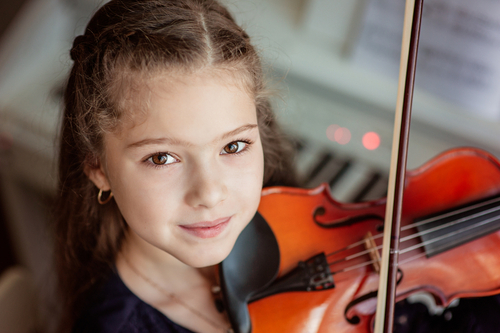
Learning to play a musical instrument is an enriching experience that can have a lifelong impact on children. From developing cognitive skills to improving emotional intelligence, there are countless benefits to introducing music into a child’s life at a young age. In this blog post, we will explore some of the top advantages of children learning to play an instrument.
Enhances Brain Development
One of the most significant benefits of learning to play an instrument is its positive impact on brain development. Research has shown that playing music engages multiple areas of the brain, including those responsible for motor skills, auditory processing, and memory. This stimulation can lead to improved cognitive abilities, such as problem-solving skills, language development, and spatial reasoning. By learning to play an instrument, children can strengthen these neural connections and enhance their overall brain function.
Improves Academic Performance
In addition to enhancing brain development, learning to play an instrument can also improve academic performance. Studies have shown that students who participate in music education tend to perform better in subjects like math, science, and language arts. This is because playing an instrument requires discipline, focus, and attention to detail – skills that can translate into success in the classroom. By encouraging your child to learn an instrument, you are setting them up for academic success in the future.
Boosts Self-Confidence
Playing an instrument can also boost a child’s self-confidence and self-esteem. As they practice and improve their skills, children will gain a sense of accomplishment and pride in their abilities. Mastering a piece of music or performing in front of an audience can be a powerful confidence booster, helping children overcome shyness and stage fright. By learning to play an instrument, children can develop a strong sense of self-worth and belief in their own abilities.
Fosters Creativity
Music is a form of self-expression that allows children to channel their emotions and creativity in a positive way. By learning to play an instrument, children can explore different sounds, rhythms, and melodies, and create their own unique musical compositions. This creative outlet can be incredibly therapeutic and empowering, helping children express themselves in ways that words alone cannot. Whether they are writing a song, improvising a melody, or experimenting with different instruments, playing music can ignite a child’s imagination and foster their creative spirit.
Teaches Discipline and Time Management
Learning to play an instrument requires dedication, practice, and perseverance. By setting aside time each day to practice, children can develop valuable discipline and time management skills that will serve them well in all areas of their lives. Whether they are preparing for a recital, learning a new piece, or mastering a challenging technique, playing an instrument teaches children the importance of hard work and perseverance. These skills can help children succeed in school, sports, and other extracurricular activities, and lay the foundation for a strong work ethic in the future.
Promotes Social Skills
Playing an instrument can also promote social skills and teamwork. Whether children are participating in a music class, ensemble, or band, playing music with others requires cooperation, communication, and collaboration. By working together to create music, children can learn how to listen, compromise, and support one another – skills that are essential for building strong relationships and navigating social interactions. Playing an instrument can also provide children with a sense of community and belonging, as they connect with peers who share their love of music.
Summary
There are countless benefits to children learning to play an instrument. From enhancing brain development and academic performance to boosting self-confidence and creativity, music education can have a profound impact on a child’s overall well-being. By encouraging your child to learn an instrument, you are providing them with a valuable tool for personal growth and development. So why not give your child the gift of music and watch as they flourish and thrive both academically and emotionally.

